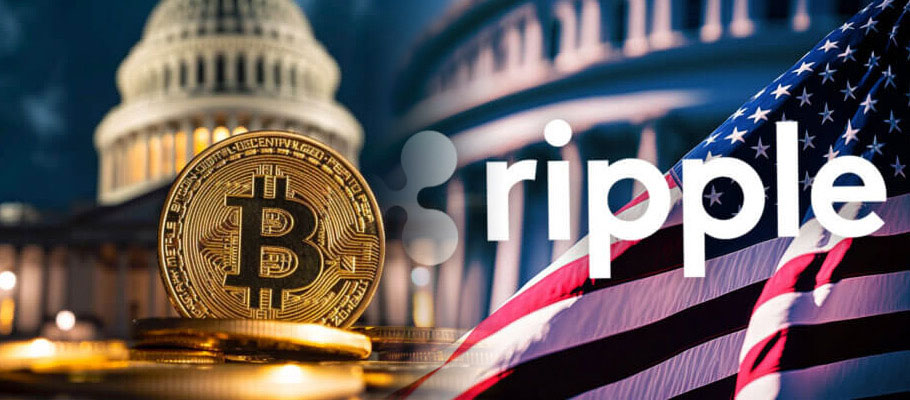
Published: June 5th, 2024
Coinbase, Ripple and VC Andreessen Horowitz (a16z) have all announced donations of USD 25 million each to Fairshake, a political action committee (PAC) dedicated to advancing crypto friendly policies in the upcoming US general election.
The PAC's war chest now totals roughly USD 160 million, ready to be splashed out on candidates who support digital assets. That makes it one of the biggest stockpiles of campaign cash in American politics.
Fairshake and its affiliate PACs have been combing through US state primaries to identify candidates for the Senate and House of Representatives who've either been crypto-curious in the past, or let it be known recently that they would be open to considering pro-crypto positions.
The committees have cumulatively handed some otherwise low-profile politicians millions in campaign support. Given its size, Fairshake is considered a ‘Super PAC,’ with pockets deep enough to fund national political advertising spots for (or against) specific candidates. PACs are restricted, however, from playing a direct role in the candidates' official campaigns.
‘Our mission is to promote economic freedom by expanding the adoption of cryptocurrencies,’ Coinbase said in a statement announcing the donation. ‘We have been deeply engaged in policy discussions with the House and Senate with the aim of guiding crypto legislation and informing members about the issues. We see growing the number of pro-crypto decision makers in Washington as a vital activity.’
Regulation remains a barrier for the crypto industry as it seeks to establish itself in the financial mainstream. By gaining political support, it's hoped that it could lead to greater investment from traditional finance and more consumer use of digital assets.
In recent months many US lawmakers have had a change of heart towards crypto and warmed to its wider acceptance. Once the dust has settled from this November's presidential and congressional contests, a raft of state and Federal legislation is expected that will establish clear rules for the use of digital assets.
Crypto and national politics previously overlapped when Libertarian contender and Bitcoin advocate Javier Milei became President of Argentina in November 2023.
Milei took 56.3 per cent of the vote versus 44.2 per cent for center-left rival Sergio Massa, Argentina's then-economy minister. Calling his mandate the ‘rebuilding Argentina,’ Milei told supporters that the challenges of a spiraling inflation rate and a rapidly declining peso meant that there was ‘no longer time for gradual measures’. He vows to implement a program of economic shock therapy that has so far led to the country’s first balanced budget in decades.
Milei was and remains an enthusiastic Bitcoin supporter, calling the cryptocurrency a return to the original creator of money, the private sector. He opposes the existence of central banks on principle and has described Argentina's central bank as ‘one of the great confidence schemes in our nation’s history.’ He claims that central bankers rob normal citizens of spending power through inflation, which operates as a stealth tax. Bitcoin’s rise, he said, is a natural reaction against central bank meddling in the economy.
Known for his shock of unkempt hair and hardline libertarian policy prescriptions, 53-year-old Milei first gained notoriety as an economist and harsh government critic before being elected to Argentina’s congress in 2021.
During the Presidential campaign, Milei struck an extreme populist pose, often waving a chainsaw at political events to demonstrate his commitment to cutting government spending. Among his more radical proposals are to allow a free market in both firearms and human organs. He also wants to repeal the country's 2020 abortion legalization bill.
Argentina was already considered a Bitcoin early adopter before Milei. In August 2022 the country’s West-central Mendoza province began accepting stablecoins as payment for tax bills.
The province, which borders Chile on the west, expanded the payment options for its 1.7 million citizens in an effort to make tax payments easier and more convenient, according to a press release on the government website.
In a lengthy document explaining the process for crypto payment, the state tax authority listed MakerDAO’s DAI and Tether’s USDT stablecoins as available options.
Taxpayers can use crypto wallets from Ripio, Lemon, Buenbit, Binance, Bitso, or Bybit amongst others. After providing ID and other preliminary information, a tool on the tax authority’s website generates a QR code users can scan with their crypto wallets.
After receiving the stablecoins, the provincial government converts the US-dollar-pegged cryptos to Argentine pesos (ARS) and generates a receipt for the transaction.
Mendoza province is situated in western-central Argentina. The capital city is also called Mendoza. It’s Argentina’s fourth largest province by population, with over 1.7 million inhabitants.
Argentina, which has frequently seen its economy and politics roiled by political upheaval, extreme inflation, and major bankruptcies, had been cozying-up to crypto in the early part of the year. It posted a 63 per cent year-over-year inflation rate in August 2022, perhaps explaining some of the Mendoza government’s enthusiasm for giving taxpayers more flexibility and choice. Cryptocurrencies had been touted by some in the country as a hedge against inflation.
With stablecoins tied to the mighty greenback, America’s relatively lower 8.5 per cent inflation rate offers a way for some Argentines to protect their household spending power.
A surge in Argentinian forex traders using crypto to swap ARS for USD had previously prompted the federal government in Buenos Aires to impose restrictions on the activity. In July 2022, the country’s central bank barred anyone buying cryptocurrency from accessing the country’s foreign exchange market, arguably in an effort to stem the tide of peso to dollar conversions.
Back in August 2021, then Argentine president Alberto Fernandez said he was open to the idea of crypto playing a larger role in the country's economic life.
He told Reuters he would consider the creation of a central bank digital currency, or possibly follow northern Neighbour El Salvador’s lead and make Bitcoin one of the country's forms of legal lender.